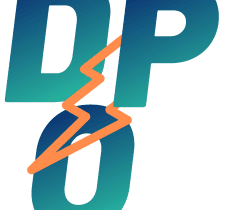Aphaia’s Managing Partner Bostjan Makarovic and Partner Cristina Contero Almagro weigh in on ICT regulation in 2019 and offer their predictions and hopes for 2020.
To say it has been an eventful 2019 for data protection, ICT Governance and ePrivacy—specifically within the EU and United Kingdom—would be an understatement. Indeed, with 2019 being the first full year with the GDPR, it proved to be a year of lessons, policy implementations, new developments, court rulings and fines all centred on honouring the privacy and rights of individuals in today’s highly technical, online based era. In fact, Privacy Affairs reports a total of 150 fines totaling €103,852,871 for the year, with a €50 million sanction on Google being the largest fine of the year.
So, with 2019 winding down to give way to 2020, we sat down with Aphaia’s Managing Partner Bostjan Makarovic and Aphaia Partner Cristina Contero Almagro for their professional insights on the year passed and their expectations and projections for 2020.
From a data protection and AI ethics standpoint How would you describe 2019? What would you pinpoint as two of the most impactful occurrences in regards to ICT regulation in the year just past?
Bostjan: 2019 has been the year when the topic of AI seems to have found a special place in the EU’s regulatory landscape. In addition, important new practical questions on the intersection of privacy and AI regulation have emerged, say in relation to smart billboards.
Cristina: AI Ethics standpoint: I would say 2019 has been a turning year. On 8 April 2019, the High-Level Expert Group on AI presented their Ethics Guidelines for Trustworthy Artificial Intelligence, which was part of a series of four documents. In April we also became members of the European AI Alliance, a multi-stakeholder forum for engaging in a broad and open discussion of all aspects of AI development and its impact on the economy and society, which allows us to interact with the AI-HLEG. The first AI Assembly took place on 26th June in Brussels and we were invited to attend, so we did. The Policy and Investment Recommendations on AI and the piloting process of the AI Ethics Guidelines were launched at this event. This year has also been the year of our YouTube channel, and we hope to keep working on our vlogs during 2020.
Data protection standpoint: 2019 has been the first whole year with the GDPR, as it started to apply in May 2018. We have been able to learn from the fines and the guidelines launched both from Member States DPAs and EU bodies, as the EDPB. One of the most expected event of this year was the publication of the cookies guidance from DPAs (ICO in UK, AEPD in Spain, CNIL in France, etc.), although we will still have to wait for the new ePrivacy Regulation.
As we look ahead to 2020, from your analysis what are some expectations? Do you foresee any changes or implementations that would be have a big effect on the way businesses operate?
Cristina: I personally hope that EU Guidelines rise awareness of the importance of ethics, and that this addresses the approval of code of conducts for the industry. We also expect a revised ePrivacy Regulation proposal as part of the forthcoming EU Croatian Presidency.
It would be also great to see how 2020 becomes the year of 5G, as it will definitely impact the way we do businesses, and our lives as such, plus it is closely linked to data protection and AI Ethics. There is a lot of work to do there. It is challenging and we are looking forward to this becoming a reality. Smart cities, self-driving cars, AR… there is a whole world outside waiting for 5G!
We cannot forget about Brexit, that may severely impact data protection and AI ethics across Europe.
Bostjan: In the second half of 2020, the new European Electronic Communications Code (EECC) will directly affect both communications services and telecoms infrastructure providers across the EU. I am also wondering whether in 2020 European Commission might seriously start looking into the possibility of a mandatory regulatory framework for AI, in addition to that of GDPR.
What advice would you give to online businesses and companies utilizing AI to ensure they get on top of the changes coming in 2020?
Cristina: With no doubts… They should contact Aphaia! (just kidding). What I would advise that they look at the past and hear their customers. Look at the past because, with the example of GDPR for instance, it is easy to see how costly not doing the right thing from the beginning is, and hearing their customers, because the audience is demanding trustworthy AI, and they may not see a negative impact of not providing it for now, but it is just a matter of time, ‘adapt or die’.
Bostjan: As Cristina pointed out, getting timely compliance advice is crucial. GDPR requirement for ‘data protection by design and by default’ already requires businesses to look into privacy matters at the point of the development of the product, not once it has been finalised or even launched. In the second half of 2020, many online businesses providing voice, chat or messaging platforms will also need to ensure they comply with the EECC.
Do you need assistance in ICT policy or regulation? Aphaia provides GDPR and UK Data Protection Act 2018 consultancy services, data protection impact assessments, Data Protection Officer outsourcing , AI ethics assessments and telecoms policy and regulation consultancy services.







